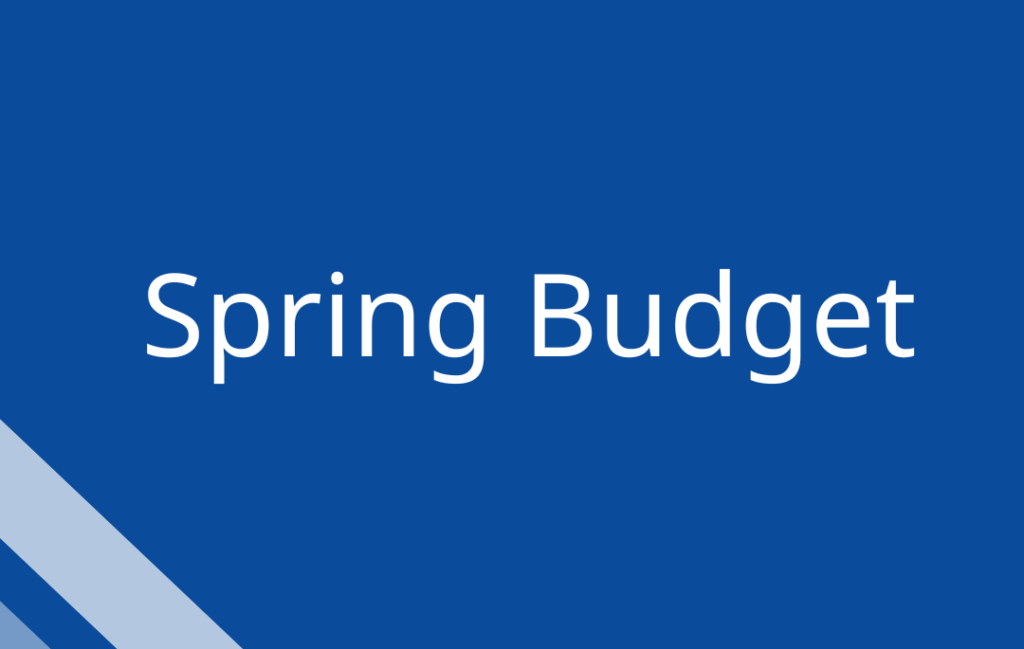Voters' Pessimism Grows Over Spring Budget: Key Findings

Table of Contents
Economic Anxiety Fuels Voter Discontent
The Spring Budget's failure to adequately address the escalating cost of living crisis is a primary driver of public discontent. The combination of soaring energy prices, rampant food inflation, and increased taxation has left many struggling to make ends meet.
Rising Cost of Living and Budgetary Impact
- Energy Prices: The budget offered minimal relief on soaring energy bills, leaving millions facing crippling winter fuel costs. Recent reports indicate a 40% increase in average household energy expenditure since last year.
- Food Inflation: The rising cost of essential food items continues to strain household budgets. Data from the Office for National Statistics shows a 15% increase in food prices over the past 12 months, impacting low-income families most severely.
- Tax Increases: Despite promises of tax cuts, the budget included several tax increases that many perceive as unfair and regressive, further exacerbating the financial burden on ordinary citizens. Experts from the Institute for Fiscal Studies have criticized these increases for disproportionately impacting low- and middle-income households.
"The budget offers little comfort to those struggling with the daily realities of rising costs," commented leading economist Dr. Anya Sharma in a recent interview with the Financial Times.
Impact on Vulnerable Groups
The impact of the rising cost of living and the perceived inadequacy of the Spring Budget is particularly harsh on vulnerable groups. Low-income families, pensioners, and those with disabilities are disproportionately affected.
- Low-income Families: Many families are forced to choose between heating and eating, with food banks reporting a dramatic surge in demand. Case studies highlight the struggles of single mothers working multiple jobs and still struggling to afford basic necessities.
- Pensioners: Fixed incomes leave many pensioners unable to cope with escalating energy and food prices, pushing them into poverty. Reports suggest a 20% increase in the number of pensioners relying on charitable support.
The government's failure to adequately protect these vulnerable groups has fueled widespread anger and resentment.
Lack of Confidence in Government Policies
Beyond the immediate economic anxieties, the Spring Budget has also eroded public trust in the government's ability to manage the economy effectively.
Perceived Ineffectiveness of Budget Measures
Many voters perceive the budget measures as ineffective in addressing the root causes of the economic crisis. The lack of substantial investment in renewable energy sources, for example, has been criticized as a missed opportunity to tackle rising energy costs in the long term.
- Public Opinion Polls: Numerous polls reveal widespread disapproval of the budget's handling of the cost of living crisis, with a significant majority believing the government is not doing enough.
- Government Response: The government's response to criticism has been met with skepticism, with accusations of a lack of transparency and accountability.
The perceived disconnect between the government's promises and the lived experiences of ordinary citizens has further fueled public anger.
Erosion of Public Trust
The Spring Budget has contributed to a broader erosion of public trust in the government's economic management. This is exacerbated by past policy failures and ongoing controversies surrounding government spending.
- Scandals and Controversies: Previous scandals involving government spending and alleged corruption have eroded public faith in the integrity of the political system.
- Long-Term Implications: The loss of public trust can have significant long-term consequences, hindering the government's ability to implement effective policies and undermining social cohesion.
Alternative Perspectives and Policy Suggestions
The growing dissatisfaction with the Spring Budget has prompted alternative proposals from various sources.
Opposition Party Responses
Opposition parties have criticized the Spring Budget for its lack of ambition and its failure to address the needs of ordinary people. They have proposed alternative policies focusing on targeted support for low-income families, investment in renewable energy, and fairer taxation. The Labour party, for example, has proposed a windfall tax on energy companies to fund targeted support for vulnerable households.
Expert Opinions and Recommendations
Economists and other experts have offered various recommendations for addressing the cost of living crisis and restoring public confidence. These include increasing investment in affordable housing, expanding access to childcare, and implementing more progressive taxation policies.
Conclusion: Understanding and Addressing Voters' Pessimism Over the Spring Budget
The widespread voters' pessimism over the Spring Budget stems from a combination of economic anxieties, a perceived lack of effective government policies, and a growing erosion of public trust. Understanding the depth of these concerns is crucial for effective governance. Addressing voter pessimism requires a comprehensive approach that tackles the root causes of the cost of living crisis, restores public faith in government, and prioritizes the needs of vulnerable groups. Make your voice heard – contact your elected officials and demand a budget that addresses the concerns of the nation and tackles the root causes of the widespread voter pessimism over the Spring Budget. Let's work together to ensure that future budgets truly reflect the needs and aspirations of all citizens.

Featured Posts
-
 Mike Youngs Next Chapter His Vision For Virginia Techs Basketball Program
May 19, 2025
Mike Youngs Next Chapter His Vision For Virginia Techs Basketball Program
May 19, 2025 -
 Samoy Eysevios Odigos Gia Xristianiki Zoi Kai Pneymatiki Anaptyksi
May 19, 2025
Samoy Eysevios Odigos Gia Xristianiki Zoi Kai Pneymatiki Anaptyksi
May 19, 2025 -
 Cannes Film Festival A Trio Of Stars Ambrosio Shaik And Alba
May 19, 2025
Cannes Film Festival A Trio Of Stars Ambrosio Shaik And Alba
May 19, 2025 -
 Jennifer Lawrence And Husband Enjoy A Casual Stroll New Photos
May 19, 2025
Jennifer Lawrence And Husband Enjoy A Casual Stroll New Photos
May 19, 2025 -
 Junior Eurovision 2025 Australias Non Participation Confirmed
May 19, 2025
Junior Eurovision 2025 Australias Non Participation Confirmed
May 19, 2025
